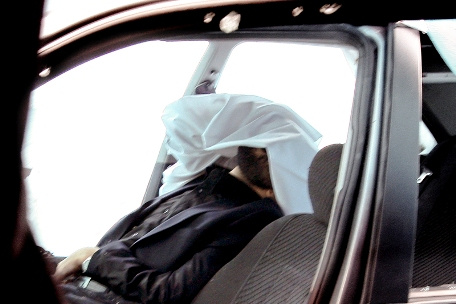The Absence of International Law in Iran Terror Incidents

According to specific international laws, certain personalities are valued and protected internationally. In 1973, governments signed the International Convention of the importance of international personalities, including diplomats. Any violation toward these people is considered an international crime. Therefore, in the event that any of these individuals gets violated, governments and agencies work together to pursue the violators and if necessary seek reimbursement.
Unfortunately, the scope of this Convention does not include scientists, including nuclear scientists. Therefore, we cannot use this mechanism to cover our Iranian martyred nuclear scientists. These people are not considered diplomats, and perhaps this may be one of the faults of this Convention. With the support of other governments whose scientists have been a target of terrorist activities, perhaps we could start protecting these individuals by including them in this Convention.
The mechanisms of international law have not developed enough to follow one government’s claims against another government’s alleged terrorist operations against its citizens and scientists. The main problem here is that there is no authorized international tribunal to deal with such claims or to investigate such international incidents-- similar to what would happen in a civil court. The governments do, however, have the option to conduct investigations through Interpol, proving they have sufficient evidence.
The Iranian government did, for instance, put in a request with Interpol to investigate the two American senators who called for the assassination of the head of the Quds Corps, Gen. Qasem Soleymani. Therefore, it is possible to carry out this sort of investigation, provided that the defendants are identified and that there are reasonable grounds to charge them. Interpol is Iran’s only option to initiate investigation on an international level regarding the terror attack on its nuclear scientist. There are no other investigation options for Iran due to the fact that it did not become a member of the 1997 Prevention and Suppression of Terrorist Bombings Convention; this particular case falls directly under this Convention.
Iran could discuss the nuclear scientists’ assassination in the UN Security Council, asking the Council to condemn the act. This could also be done in the UN General Assembly, especially if there is solid evidence showing the involvement of a foreign government. Strictly speaking, without sufficient evidence Iran cannot point the finger of blame to a foreign government, just because the US, UK and Israel have openly expressed that Iran’s nuclear program has to be stopped.
The terrorist activities that took place last year and this year clearly shows a gap in the existing international laws and conventions regarding the protection of scientists. Considering that at this point Iran does not have sufficient evidence against a foreign government, it could instead ask the diplomatic community, the UN Security Council, UNESCO and the UN General Assembly to condemn these acts. At this point however, there are no sufficient grounds to pursue these cases unless, over time, new information regarding this case comes to light.

